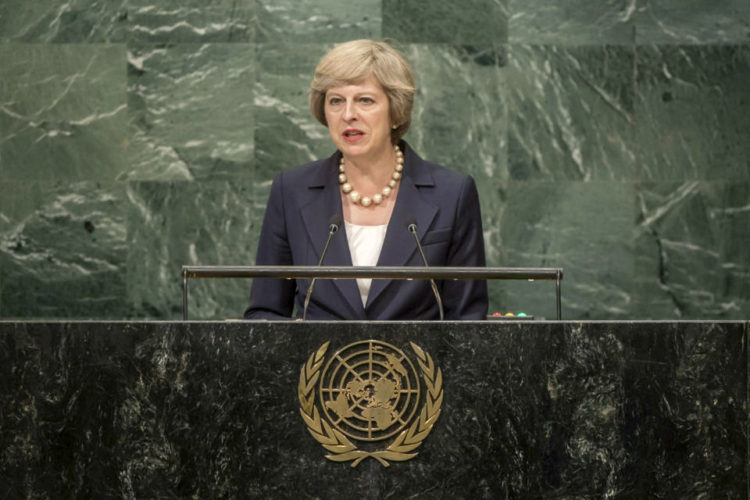By Ben Kerrigan-
Prime Minister Theresa May is under extreme pressure following a confrontation with Conservative party Eurosceptics over her support for a new hybrid “customs partnership” between Britain and the EU.
60 Tory MPs from the pro-Leave European Research Group have written to Theresa May ahead of a Brexit cabinet committee meeting on Wednesday, warning against the proposal.
Chancellor, Philip Hammond, and business chancellor, Greg Clark, are backing the customs partnership plan under which Britain will mirror the EU’s customs regime at its borders and collect tariffs on behalf of Brussels.Some Conservative Mps consider the hybrid model customs to be deeply flawed.
In the event of Britain setting different tariffs in the future, importers will be able to claim back a refund from HM Revenue & Customs if their goods are revealed to be destined for the UK market.
Olly Robbins, Mrs May’s representative at Brexit talks, Olly Robins, believes the proposal would remove the need for a customs border between Britain and the EU, including in Ireland, one of the thorniest issues in the negotiations. Brussel officials are skeptical about the idea, and consider it not very viable.
The tension over Britain’s future customs relationship with the EU has split the Conservative party, and is expected to split Mrs May’s inner Brexit cabinet when it meets to discuss customs policy on Wednesday.
David Lidington, Cabinet Office minister, said on the Today programme that the Brexit committee meeting would be the “start” of ministerial discussions on customs options but that a final decision on the issue would have to come soon.
“I expect we will come to a decision on this and other important elements of our negotiating position in the next few weeks,” he told the BBC. “We need to make sure that significant progress is made in negotiations before the June [EU] summit.”Theresa May wants Britain to enter into more detailed Brexit discussions in Brussels.Mr Hammond and Mr Clark are strongly in favour of the hybrid model, which excludes the necessity of a customs border in trade between the UK and The EU, while maintaining the freedom of the UK to set its own trade policy.










